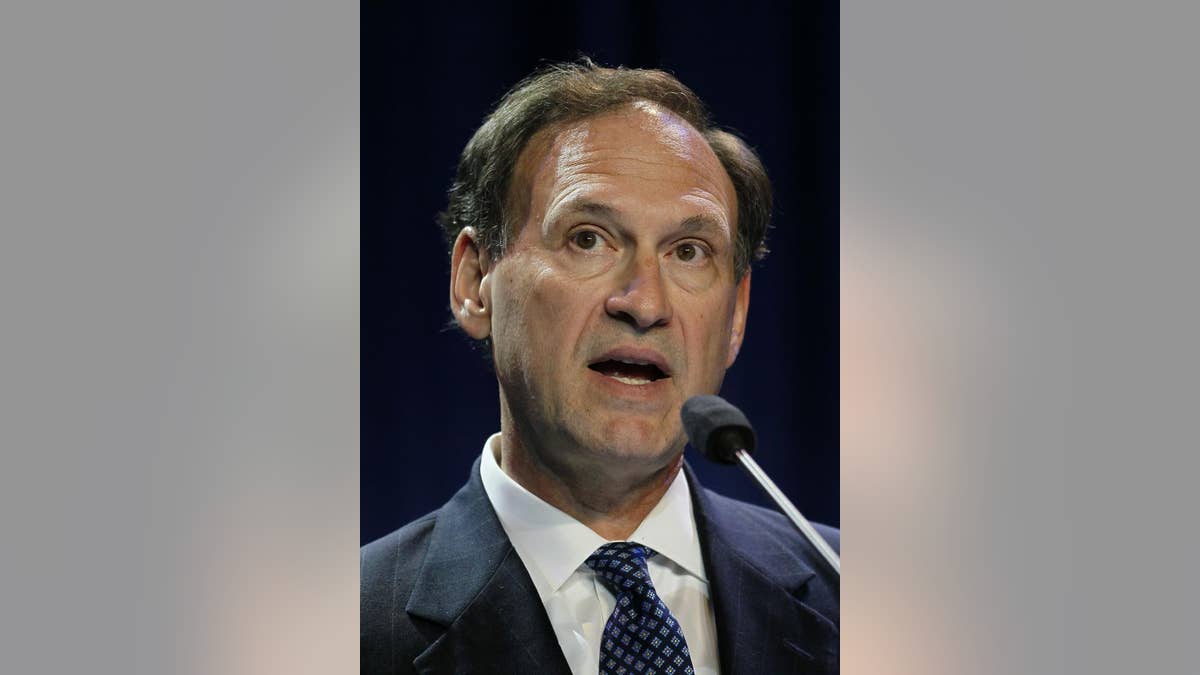
Supreme Court Justice Samuel Alito (AP/File Photo)
Like other teenagers--and many adults--all 16 year old Whitney Harper wanted to do was go online and listen to some music. On Monday, the Supreme Court announced, over the objection of Justice Samuel Alito, it will not hear Harper's appeal for illegally downloading 37 songs.
The high court's decision means Harper will have to pay a $27,750 fine ($750 per download) which she claimed was excessive. Her lawyers wanted to reduce the fine to only $7,400 ($200 per download) arguing that she is an "inadvertent innocent infringer."
Alito was the only justice to publicly say he felt Harper's case deserved more attention from the court saying the teenager's fine was based on a law that may be outdated in the digital age.
The case started with an industry crackdown on people who illegally download copyrighted music. That effort led to numerous lawsuits with this one being the first to reach the high court.
There was no dispute that Harper used the file sharing website Kazaa to illegally download her music. It's also understood that Harper was unaware of the copyright laws prohibiting downloads.
What was at issue was technical language in the copyright law that covers violations and the appropriate penalties for those who break the law.
Harper's lawyers argued that their "inadvertent innocent infringer" defense should be allowed because the website did not include a notice of copyright protection that is regularly included on record labels. Without that notice, they argued Harper should only be subject to the smallest possible fine per violation.
In explaining his position, Alito appeared to agree with Harper saying there is a "strong argument" that the current law does not apply to downloaded digital music files. "[A] person who downloads a digital music file generally does not see any material object bearing a copyright notice, and accordingly there is force to the argument that [current law] does not apply."
Lawyers for several major recording companies asked the high court to stay out of the case arguing that Harper's position "does not square with the plain language" of copyright law.
Alito said he hopes the justices get another chance in a different case to give the matter further review.




